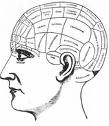Andrew Combe 1797 - 1847
May 30, 2009
 Andrew Combe 1797 - 1847 Scottish
physiologistand younger brother of George
Combe, and the
physician of Leopold I
Belgium
and Queen
Victoria.
Andrew Combe 1797 - 1847 Scottish
physiologistand younger brother of George
Combe, and the
physician of Leopold I
Belgium
and Queen
Victoria.
Andrew Combe wrote a letter in defense of homeopathy to John Forbes, wherein he declares himself satisfied that homeopathy has ‘established its claim for a fair hearing’, and encouraging John Forbes to conduct clinical trials on homeopathy (_The life and correspondence of Andrew Combe.__ _George Combe. A. Hart, 1850. Page 362).
Andrew Combe was a friend of Robert Chambers, John Chapman, Richard Cobden, Catharine Crowe, John Epps, Marmaduke Blake Sampson, Elizabeth Cady Stanton,
He proceeded to Paris to complete his medical studies, and whilst there he investigated phrenology on anatomical principles. He became convinced of the truth of the new science, and, as he acquired much skill in the dissection of the brain, he subsequently gave additional interest to the lectures of his brother George Combe, by his practical demonstrations of the convolutions.
He returned to Edinburgh in 1819 with the intention of beginning practice; but being attacked by the first symptoms of pulmonary disease, he sought to improve his health in the south of France and Italy during the two following winters.
He began to practise in 1823, and by careful adherence to the laws of health he was enabled to fulfil the duties of his profession for nine years. During that period he assisted in editing the Phrenological Journal and contributed a number of articles to it, defended phrenology before the Royal Medical Society of Edinburgh, published his Observations on Mental Derangement, and prepared the greater portion of his _The Principles of Physiology Applied to the Preservation of Health___, which was issued in 1834, and immediately obtained extensive public favor.
In 1836 he was appointed physician to Leopold I Belgium, and removed to Brussels, but he speedily found the climate unsuitable and returned to Edinburgh, where he resumed his practice.
In 1836 he published his _The Physiology of Digestion_, and in 1838 he was appointed one of the physicians extraordinary to Queen Victoria in Scotland.
Two years later he completed his last work _A treatise on the physiological and moral management of infancy_, which he believed to be his best.
His latter years were mostly occupied in seeking some alleviation of his disease at various health resorts; he spent two winters in Madeira, and tried a voyage to the United States, but was compelled to return within a few weeks of the date of his landing at New York.
He died at Gorgie, near Edinburgh, on the August 9, 1847. His biography, written by George Combe, was published in 1850.
Andrew Combe wrote Experiments and observations on the gastric juice, On the Functions of the Cerebellum, The Management of Infancy, Physiological and Moral, The Principles of Physiology Applied to the Preservation of Health, A treatise on the physiological and moral management of infancy, The Physiology of Digestion, Observations on Mental Derangement, Phrenology - its nature and uses, Selections from the Phrenological Journal,